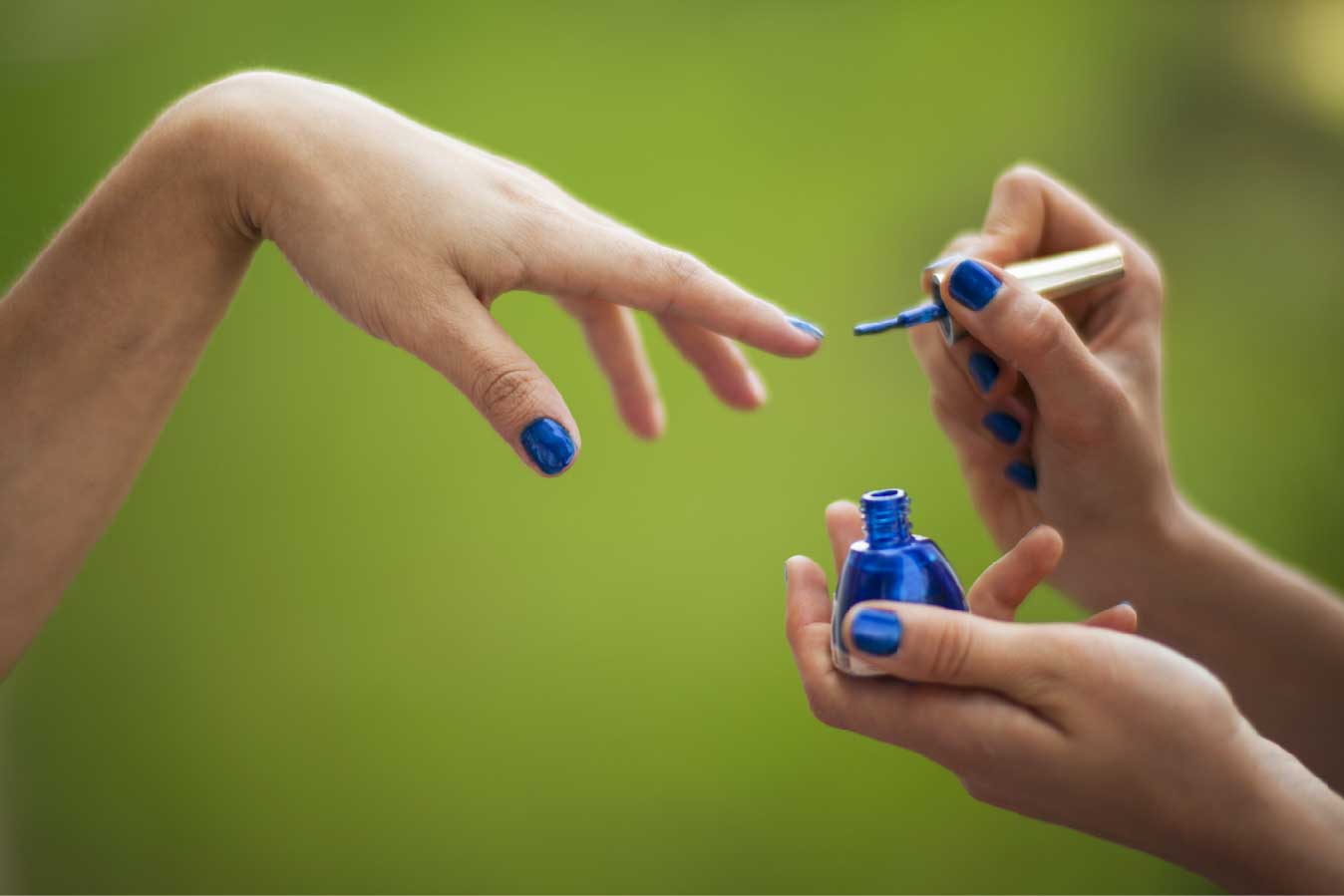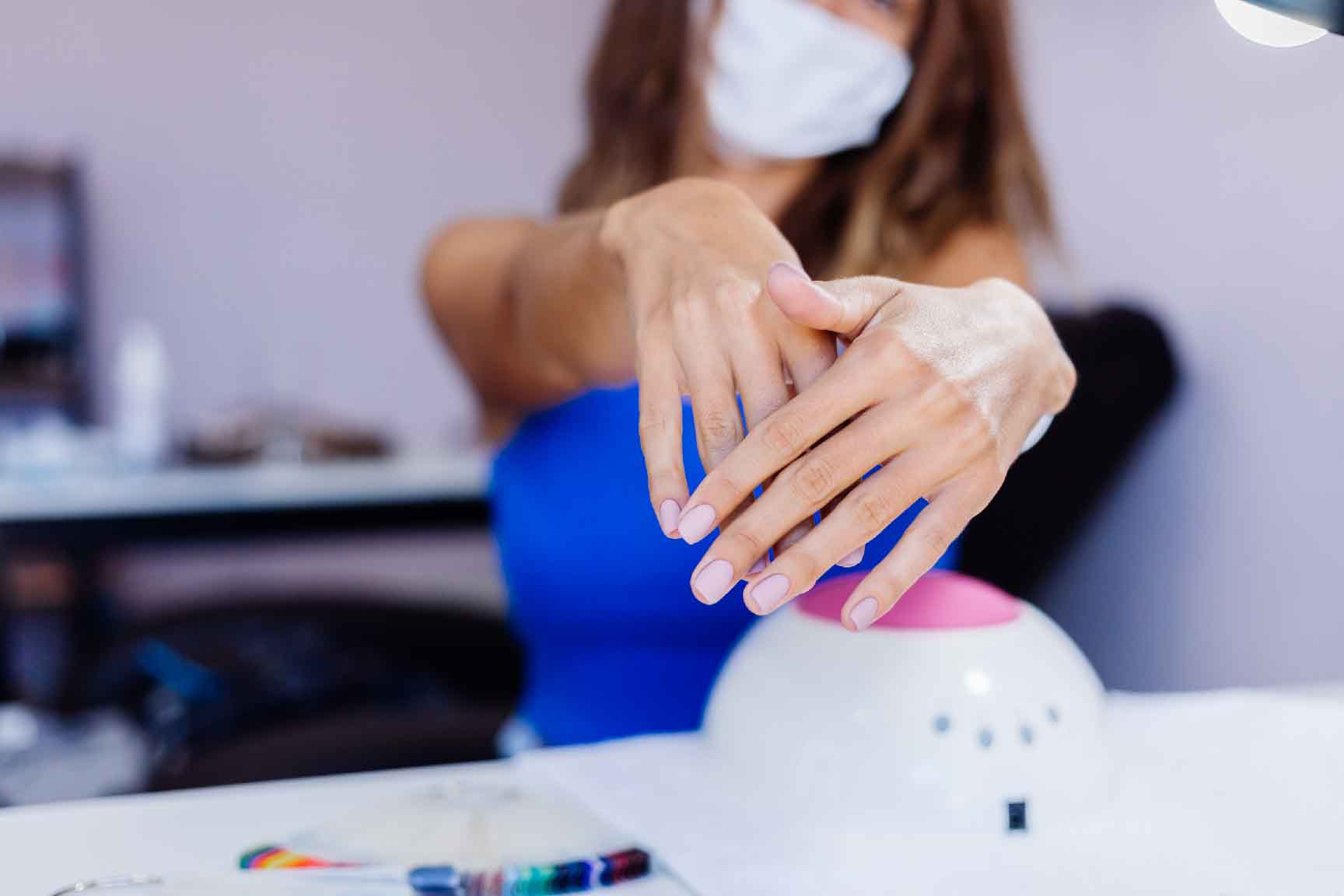
Is Your Nail Polish Really Safe?
Uncovering the Hidden Chemicals in Nail Polish
Ever wondered what’s inside those pretty little bottles of nail polish? Many people assume, “It’s just polish—what harm could it do?” But the truth is, nail polish often contains chemicals that may affect your health more than you realize.
Today, let’s dive into the toxic ingredients commonly found in nail polish and learn how to protect ourselves.
That Strong Smell? A Warning Sign
Every time you open a bottle of nail polish, you notice that sharp smell, right? That odor is not just “normal.” It’s actually a signal that volatile chemicals are being released into the air.
When inhaled, these fumes enter your body through breathing. Ever felt dizzy, lightheaded, or got a headache after a manicure? That’s your body reacting to these chemicals.
The Infamous “Big 3” in Nail Polish
Formaldehyde – The Preservative You Don’t Want
Used to harden and make polish glossy
Classified as a carcinogen by the World Health Organization
Causes eye, skin, and respiratory irritation
Can trigger skin allergies and rashes
Toluene – The Dangerous Solvent
Helps polish apply smoothly
Affects the nervous system in high amounts
Can cause dizziness, headaches, and nausea
May affect fetal development during pregnancy
Dibutyl Phthalate (DBP) – The Flexibility Agent
Prevents polish from chipping
Disrupts hormones (endocrine disruptor)
Linked to reproductive issues
Easily absorbed through skin and nails
Other Harmful Chemicals to Watch Out For
Triphenyl Phosphate (TPHP) – Hormone disruptor, can affect metabolism
Xylene – Irritates skin and impacts the central nervous system
Methyl Ethyl Ketone (MEK) – Triggers headaches, dizziness, and respiratory irritation
High-Risk Groups
Pregnant & Nursing Women – Chemicals can pass to the fetus or into breast milk
Children & Teens – Their bodies eliminate toxins more slowly, increasing risk
Nail Technicians – Daily, long-term exposure raises risks of miscarriages and chronic health issues
Symptoms to Watch For
Short-term effects:
Headache, dizziness, nausea
Watery eyes, irritated nose or throat
Long-term effects:
Brittle, weak, or discolored nails
Chronic skin irritation
Breathing problems
Serious warning signs:
Trouble breathing
Severe allergic rash or swelling
Persistent migraines or vomiting
If you experience these, stop using polish immediately and see a doctor.
How to Protect Yourself
Choose safer polishes:
Look for labels like “3-Free”, “5-Free”, or even “7-Free” (no formaldehyde, toluene, DBP, and more).
Prefer lighter or pastel colors—dark reds and blacks often contain more chemicals.
Use polish safely:
Apply in well-ventilated areas (open windows, use a fan).
Avoid layering too many coats.
Limit manicures to 2–3 times per month.
After-care:
Wash hands and nails thoroughly after application.
Moisturize nails and cuticles with oil before bed.
Stay hydrated to keep nails healthy from the inside out.
Safer Alternatives
Water-based nail polish – Uses water instead of harsh solvents, easier to remove
Organic polish – Made with natural ingredients, free from synthetic toxins
Natural nail care – Buffing, cuticle oils, lemon soaks, coconut oil massages
When to See a Doctor
Seek medical advice if you have:
Severe allergic reactions
Breathing difficulties
Swelling around lips, tongue, or face
Nails that change color or texture abnormally
Bring the polish bottle with you and record your symptoms—it helps doctors identify the cause.
The Clean Beauty Movement in Nail Care
Many new nail brands are moving towards:
Non-toxic, plant-based formulas
Eco-friendly packaging
Certifications for safety and sustainability
Innovations include:
Gel strips (ready-to-use, chemical-free)
Breathable polishes (let nails get oxygen)
Quick-dry tech (reduces chemical exposure time)
Final Takeaway: Beauty + Safety Go Hand in Hand
Nail polish isn’t “evil,” but it must be used wisely. With smart product choices, safe habits, and proper nail care, you can enjoy both beauty and health at the same time.
Remember: truly beautiful nails are healthy nails first.





